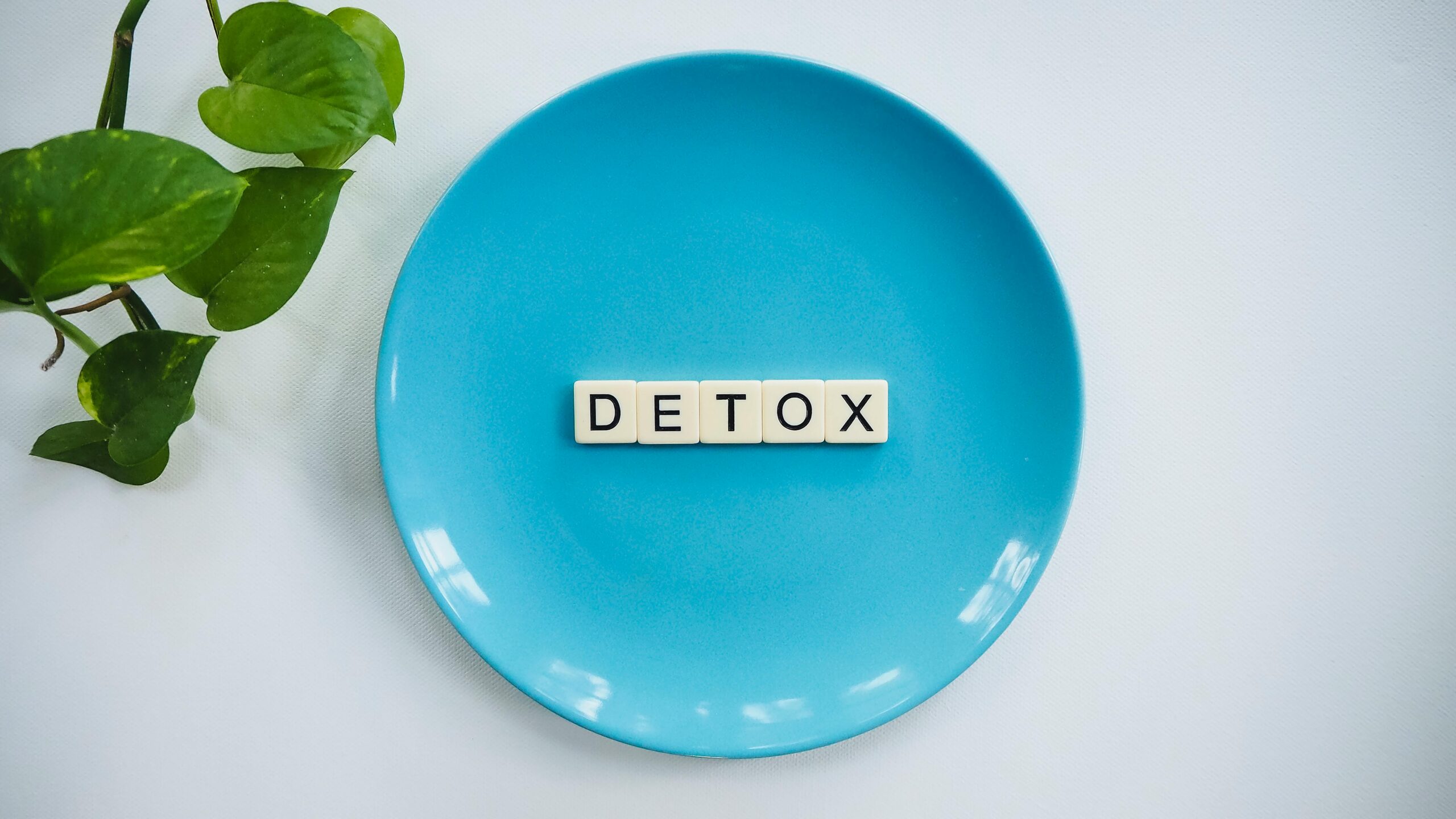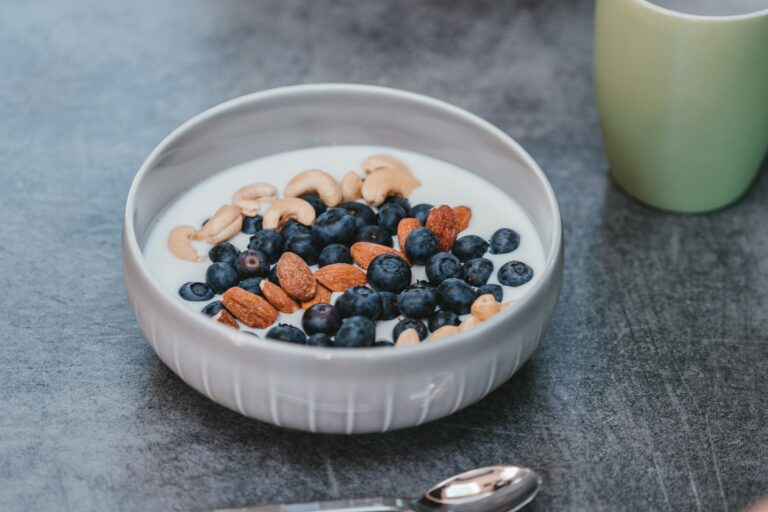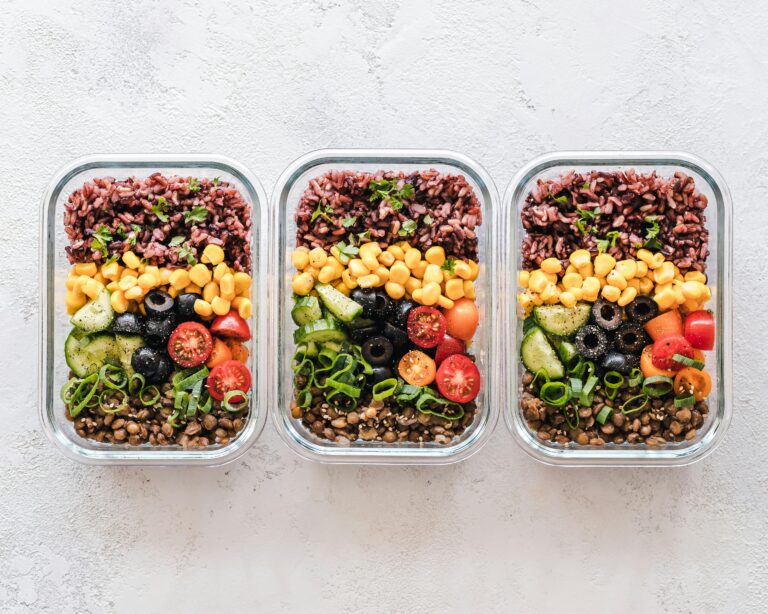5 Best Diet Detoxes For Weight Loss

Table of Contents:
Overview
Detoxing for weight loss has gained popularity in recent years as people seek natural and holistic approaches to achieve their weight loss goals.
The concept of detoxing involves eliminating toxins from the body through various methods such as dietary changes, herbal supplements, or cleansing practices.
Proponents of detoxes believe that by removing toxins and impurities from the body, it can improve digestion, boost metabolism, and support overall weight loss efforts.
While scientific evidence on the effectiveness of detoxes for weight loss is mixed, many individuals incorporate detoxing as part of their wellness routine to kickstart healthier habits and promote a sense of well-being.
In this article, we’ll explore five of the best detox diets for weight loss and discuss their potential benefits and considerations.
Understanding Detoxification
The human body has innate mechanisms for detoxification, primarily carried out by the liver, kidneys, lungs, skin, and lymphatic system. These organs work together to neutralize and eliminate toxins and waste products from the body.
Detox diets or cleanses claim to support these natural processes by providing the body with specific nutrients or by restricting certain foods believed to burden the detoxification organs.
Supporters of detoxes argue that by following a detox regimen, individuals can enhance their body’s ability to rid itself of toxins, leading to improved overall health and potentially aiding in weight loss. However, it’s important to note that the effectiveness of detox diets for weight loss is a topic of debate among health professionals, and scientific evidence supporting their efficacy is limited.
While some people may experience short-term weight loss or feelings of increased well-being from detoxing, the long-term effects and safety of prolonged detox regimens are not well understood. It’s essential to approach detoxing with caution and to consult with a healthcare professional before starting any detox program.
Benefits of Detoxes for Weight Loss
One of the primary benefits of detoxes for weight loss is the reduction of bloating and water retention. By eliminating processed foods, excess sodium, and other potential bloating culprits from the diet, individuals may experience a decrease in bloating and puffiness, leading to a slimmer appearance.
Detoxes are also believed to boost metabolism, although the mechanisms behind this effect are not entirely understood. Some detox programs include foods or supplements that are purported to increase metabolic rate, such as green tea or cayenne pepper. Additionally, by promoting healthier eating habits and eliminating processed foods and added sugars, detoxes may support overall metabolic function.
Furthermore, detoxes can serve as a catalyst for jump-starting healthier eating habits. Many detox programs encourage participants to consume whole, nutrient-dense foods like fruits, vegetables, lean proteins, and healthy fats while avoiding processed foods, alcohol, and added sugars. By focusing on nourishing the body with nutrient-rich foods, individuals may develop a greater appreciation for healthier eating patterns and continue making positive dietary choices beyond the duration of the detox program.
Many people find that detoxes provide a sense of rejuvenation, improved energy levels, and enhanced well-being, which can contribute to overall health and weight management goals.
Top 5 Types of Detoxes for Weight Loss
When it comes to detoxes for weight loss, several popular methods are commonly used to help individuals jumpstart their wellness journey. Each type of detox has its own unique approach and potential benefits, but it’s essential to consider both the advantages and drawbacks before embarking on any regimen.
Juice Cleanses
Juice cleanses involve consuming only freshly pressed fruit and vegetable juices for a specified period, typically ranging from one to several days.
These juices are believed to flood the body with vitamins, minerals, and antioxidants while giving the digestive system a break from solid foods.
Juice cleanses may lead to rapid weight loss due to calorie restriction and increased hydration, but they may also lack essential nutrients like protein and fiber.
Water Fasts
Water fasting involves abstaining from all food and beverages except water for a set period.
This approach is thought to promote detoxification by allowing the body to focus its energy on cleansing and repair processes.
Water fasts may result in significant weight loss and detoxification effects, but they can also be challenging to sustain and may lead to dehydration and nutrient deficiencies if not done properly.
Herbal Detox Programs
Herbal detox programs utilize a combination of herbs, supplements, and dietary changes to support the body’s natural detoxification processes.
These programs often include ingredients like milk thistle, dandelion root, and turmeric, which are believed to support liver function and promote toxin elimination.
Herbal detox programs may offer gentle and sustainable detoxification benefits, but individual responses can vary, and some people may experience side effects or interactions with medications.
Clean Eating Detoxes
Clean eating detoxes focus on eliminating processed foods, added sugars, alcohol, and other potential toxins from the diet while emphasizing whole, nutrient-dense foods like fruits, vegetables, lean proteins, and healthy fats.
By nourishing the body with wholesome foods, clean eating detoxes aim to support overall health and weight loss goals while minimizing exposure to harmful substances.
These detoxes may offer sustainable and long-term benefits, but they require commitment and dedication to healthy eating habits.
Teatoxes

Teatoxes involve drinking specially formulated herbal teas that claim to support detoxification, digestion, and weight loss.
These teas often contain ingredients like green tea, dandelion root, and ginger, which are believed to have detoxifying and metabolism-boosting properties.
While teatoxes may offer a convenient and enjoyable way to incorporate detox support into daily routines, it’s essential to choose reputable brands and be mindful of potential side effects like digestive discomfort or caffeine sensitivity.
Overall, the best type of detox for weight loss will depend on individual preferences, goals, and health considerations. It’s essential to consult with a healthcare professional before starting any detox program to ensure it’s safe and appropriate for your needs.
Key Ingredients in Detoxes
Detoxes for weight loss often rely on specific ingredients believed to promote detoxification and support weight loss goals. Understanding the key components of these detoxes can help individuals make informed choices about which regimen may be best suited to their needs.
Lemon
Lemon is a popular ingredient in detoxes due to its high vitamin C content and potential alkalizing effects on the body. It is believed to stimulate the liver and promote the production of bile, which aids in the digestion and breakdown of fats. Additionally, lemon water is often used as a natural diuretic, helping to flush out toxins and excess water weight from the body.
Ginger
Ginger is prized for its anti-inflammatory and digestive properties, making it a common addition to detox regimens. It is believed to support digestion by increasing gastric motility and reducing bloating and gas. Ginger may also help boost metabolism and promote thermogenesis, leading to increased calorie burning and potential weight loss.
Dandelion Root
Dandelion root has long been used in traditional medicine as a natural diuretic and liver tonic. It is believed to stimulate bile production and promote liver detoxification, helping to eliminate toxins from the body. Additionally, dandelion root may aid in digestion and relieve water retention, making it a popular ingredient in detox teas and supplements.
Green Tea
Green tea is rich in antioxidants called catechins, which have been studied for their potential effects on metabolism and weight loss. Epigallocatechin gallate (EGCG), the most abundant catechin in green tea, is believed to boost metabolism and increase fat oxidation, leading to greater calorie expenditure. Green tea may also have appetite-suppressing effects, making it a valuable addition to detox regimens for weight loss.
By incorporating these key ingredients into detoxes for weight loss, individuals may support their body’s natural detoxification processes while promoting overall health and well-being. However, it’s essential to remember that while these ingredients may offer potential benefits, individual responses can vary, and more research is needed to fully understand their effects on weight loss. As always, it’s advisable to consult with a healthcare professional before starting any detox program or supplement regimen, especially if you have underlying health conditions or are taking medications.
Tips for a Successful Detox
Embarking on a detox for weight loss can be a rejuvenating experience for both body and mind, but it’s essential to approach it with care and consideration. Here are some practical tips to help you navigate your detox journey safely and effectively:
Stay Hydrated

Hydration is key during a detox, as it helps flush out toxins from the body and supports overall health and well-being. Aim to drink plenty of water throughout the day to stay hydrated and promote optimal detoxification. You can also incorporate hydrating beverages like herbal teas, infused water, or coconut water to add variety and flavor to your hydration routine.
Listen to Your Body
Pay attention to how your body responds during the detox process and adjust accordingly. If you experience any discomfort or adverse symptoms, such as headaches, fatigue, or digestive issues, it may be a sign that your body needs more nourishment or rest. Listen to your body’s cues and modify your detox plan as needed to ensure it aligns with your individual needs and comfort level.
Gradually Reintroduce Foods
After completing your detox, it’s essential to reintroduce foods gradually to avoid overwhelming your digestive system. Start with light, easily digestible foods like fruits, vegetables, and lean proteins, and gradually incorporate other food groups over time. This gradual approach can help prevent digestive upset and allow your body to adjust to regular eating patterns more smoothly.
Practice Mindful Eating
During and after your detox, practice mindful eating to cultivate a deeper awareness of your food choices and eating habits. Pay attention to hunger and fullness cues, savor the flavors and textures of your meals, and eat slowly and attentively. Mindful eating can help foster a more positive relationship with food, promote healthier eating behaviors, and support long-term weight management goals.
Prioritize Self-Care
Finally, prioritize self-care throughout your detox journey by incorporating relaxation techniques, stress management strategies, and activities that nourish your body and soul. Whether it’s practicing yoga, meditation, journaling, or simply taking time to rest and recharge, self-care plays a vital role in supporting overall health and well-being during a detox.
By following these practical tips, you can embark on a detox for weight loss with confidence, knowing that you’re supporting your body’s natural detoxification processes while promoting optimal health and vitality. Remember to approach your detox journey with patience, compassion, and self-awareness, and always listen to your body’s needs along the way.
Potential Risks and Considerations
While detoxes for weight loss can offer numerous benefits, it’s essential to approach them with caution and awareness of potential risks. Here are some considerations to keep in mind before embarking on a detox program:
Nutrient Deficiencies
Many detox programs restrict certain food groups or severely limit calorie intake, which can lead to nutrient deficiencies if not adequately balanced. Essential nutrients like vitamins, minerals, protein, and healthy fats are vital for overall health and well-being. A prolonged deficiency in these nutrients can negatively impact various bodily functions and contribute to health issues over time.
Electrolyte Imbalances
Some detox programs, particularly those involving liquid-only diets or prolonged fasting, may disrupt electrolyte balance in the body. Electrolytes, such as sodium, potassium, and magnesium, play crucial roles in maintaining proper hydration, nerve function, and muscle contractions. Imbalances in electrolytes can lead to symptoms like fatigue, muscle cramps, dizziness, and irregular heart rhythms.
Rebound Weight Gain
Detoxes that promote rapid weight loss through severe calorie restriction or drastic dietary changes may result in rebound weight gain once the detox period ends. This phenomenon occurs when the body regains lost weight shortly after returning to regular eating patterns, often due to metabolic changes, increased appetite, and altered eating behaviors. Rebound weight gain can be frustrating and counterproductive to long-term weight loss goals.
Consultation with Healthcare Professionals
Before starting any detox program, it’s crucial to consult with a healthcare professional, such as a registered dietitian, nutritionist, or medical doctor. These professionals can provide personalized guidance based on your individual health status, dietary needs, and weight loss goals. They can also help assess the safety and suitability of specific detox programs, identify potential risks, and offer recommendations for a balanced approach to detoxification and weight loss.
By being mindful of these potential risks and considerations and seeking professional guidance when needed, you can approach detoxes for weight loss with confidence and ensure a safe and effective experience. Remember that prioritizing your health and well-being is paramount, and it’s essential to listen to your body and make informed decisions that support your overall health and weight loss goals.
Conclusion
In conclusion, detoxes for weight loss can be valuable tools for jump-starting healthier habits and shedding excess pounds. Throughout this article, we’ve explored various detox methods, their potential benefits, key ingredients, and important considerations to keep in mind.
It’s essential to approach detoxes with caution and prioritize overall health and well-being above rapid weight loss. While detox programs can offer short-term results, sustainable weight management requires a balanced approach that includes regular physical activity, mindful eating, and long-term lifestyle changes.
Remember that individual experiences with detoxes may vary, and what works for one person may not necessarily work for another. It’s essential to listen to your body, pay attention to how you feel during the detox process, and make adjustments as needed to ensure your safety and well-being.
Before embarking on any detox program, it’s highly recommended to consult with a healthcare professional, such as a registered dietitian or physician. They can provide personalized guidance, assess the suitability of specific detox methods based on your individual health status and goals, and help mitigate potential risks.
Remember, the journey to weight loss and improved health is not a sprint but a marathon. By approaching detoxes with mindfulness, caution, and a focus on holistic well-being, you can achieve lasting results and live your healthiest, happiest life.






